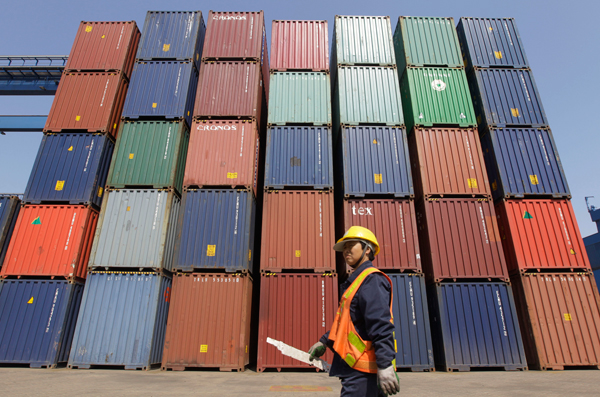China home prices continue to stabilize
BEIJING -- China's hot property market in major cities has continued to stabilize after authorities took a series of measures to contain rising prices, according to an official survey Wednesday.
Of 70 large and medium-sized cities surveyed, 45 saw prices for new residential housing climb month on month in January, down from 46 in December and 55 in November, according to the National Bureau of Statistics (NBS).
In Beijing, new residential house prices remained flat month on month, while Shanghai prices fell 0.1 percent. House prices in Shenzhen, a southern metropolis neighboring Hong Kong, slid 0.5 percent.
Year on year, house prices in the three cities have risen 24.7 percent, 23.8 percent and 18.2 percent, respectively.
According to the NBS, new residential house prices in second-tier cities rose 0.1 percent on a monthly basis, retreating 0.1 percentage points from the growth seen in December.
Third-tier cities saw new residential house prices gain 0.4 percent month on month, the same as the increase in December.
"Monthly growth in the country's 15 first-tier and major second-tier cities has slowed down and house prices have stabilized as local governments' tightening measures have taken effect," said NBS statistician Liu Jianwei.
Since October last year, dozens of Chinese cities have announced measures, including purchase limits and tightened mortgage restrictions, to prevent prices from rising out of control.
The latest round of property restrictions came after two years of progressive policy easing, starting with the relaxation of purchase restrictions in 2014. The momentum was further fueled by the government's pro-growth policies, including interest rate cuts and lower deposit requirements.
The sector's recovery, however, has been uneven, with economically strong areas reporting drastic price rises, and less developed areas still reporting huge inventories of unsold houses.
China's leaders have pledged to strictly limit credit flowing into speculative buying in the housing market and curb asset bubbles in 2017.
At the Central Economic Work Conference in December 2016, policymakers called for comprehensive measures to build a market-oriented and long-term mechanism that could curtail property bubble and prevent big market fluctuations.
In cities where prices are rising fast, governments should increase land supply and the share of residential housing, according to a statement released after the conference.
"The effect of the week-long Spring Festival holiday caused anemic sales volume, and government measures to contain price rises in major cities amplified the effect," said Xia Dan, a senior researcher at the Bank of Communications, one of China's top five lenders.
Zhang Dawei, chief analyst with property information provider Centaline, said that measures such as purchase limits and tightened mortgage restrictions were effective as new residential house prices in major cities grew more slowly compared to existing homes.
He forecast that growth of new home prices would continue to slow in the future.
Zhang was echoed by Yan Yuejin, senior researcher with E-house China R&D Institute, who said home prices in major cities may see negative growth in the fourth quarter of the year.
The real estate market played a big part in China's economic growth in2016, which was at its lowest for 26 years but still well within the target range.























